
China
Directory


Allbright Law Offices

Allen & Gledhill (Shanghai Representative Office)

An, Tian, Zhang & Partners

Anjie Broad Law Firm

Anli Partners

Appleby

Ashurst
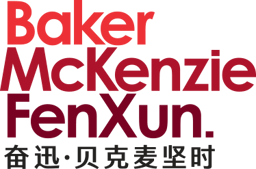
Baker McKenzie FenXun

Beijing Docvit Law Firm

Beijing Grandway Law Offices

BEIJING SHIHUI LAW FIRM

Bird & Bird

CCPIT Patent and Trademark Law Office
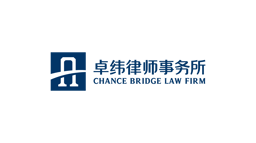
Chance Bridge Law Firm

Chang Tsi & Partners

China Patent Agent (H.K.) Ltd.

Cleary Gottlieb Steen & Hamilton

Clifford Chance

CMS

Commerce & Finance Law Offices

Curtis, Mallet-Prevost, Colt & Mosle LLP

DaHui Lawyers
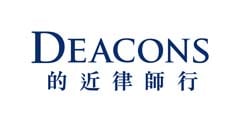
Deacons

Dehehantong Law Offices
RGB显示-01.jpg)
DeHeng Law Offices

DLA Piper

Dorsey & Whitney LLP
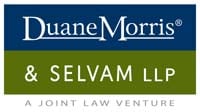
Duane Morris & Selvam LLP

East & Concord Partners

ETR Law Firm

Fangda Partners

FenXun Partners
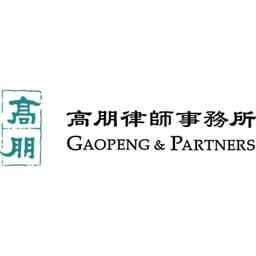
Gaopeng & Co

Gide Loyrette Nouel A.A.R.P.I.

Global Law Office

Goodwin

Gowling WLG

Grandall Law Firm

Greenberg Traurig

Guangsheng & Partners PRC Lawyers
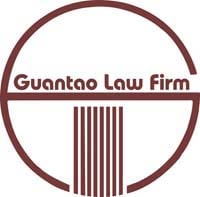
Guantao Law Firm

Guozun Cathay Associates

Hai Run Law Firm
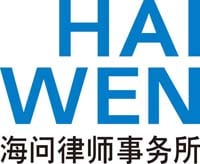
Haiwen & Partners
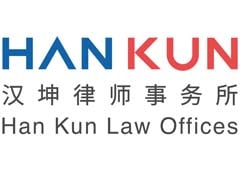
Han Kun Law Offices
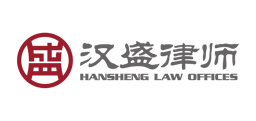
Hansheng Law Office

Harvesting Law Firm

Hengtai Law Offices

HFG

HHP Attorneys-At-Law

Hogan Lovells International LLP

Hong Fang Law
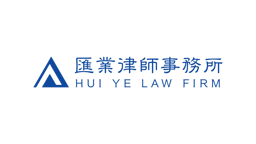
Hui Ye Law Firm

Hylands Law Firm

Jia Yuan Law Offices

Jincheng Tongda & Neal

Jingtian & Gongcheng

Joint-Win Partners

Jones Day

JunHe

JunZeJun Law Offices

K&L Gates
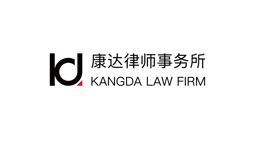
Kangda Law Firm

Kangxin Partners, p.c.

King & Capital Law Firm

King & Wood Mallesons

Kirkland & Ellis International LLP

Latham & Watkins LLP

Linklaters
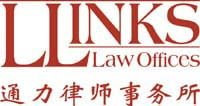
Llinks Law Offices

Longan Law firm

Lung Tin IP Attorneys

Merits & Tree Law Offices

Milbank

Morgan Lewis & Bockius LLP

Mori Hamada Intellectual Property (Beijing) Co., Ltd.

Morrison Foerster

Nagashima Ohno & Tsunematsu Shanghai Representative Office

Norton Rose Fulbright

Ogier

Orrick, Herrington & Sutcliffe LLP

Osborne Clarke

Paul, Weiss, Rifkind, Wharton & Garrison LLP

Proskauer Rose LLP

PW & Partners

Quinn Emanuel Urquhart & Sullivan, LLP

RAJAH & TANN SINGAPORE LLP Shanghai Representative Office

Ropes & Gray LLP

Shanghai Pacific Legal

Sidley Austin LLP

Simmons & Simmons

Simpson Thacher & Bartlett LLP

Stephenson Harwood

Steptoe LLP

T&C Law Firm

Tahota Law Firm

Tian Yuan Law Firm

Tiantai Law Firm

TianTong Law Firm

Tiger Partners

Topcom China Law Offices
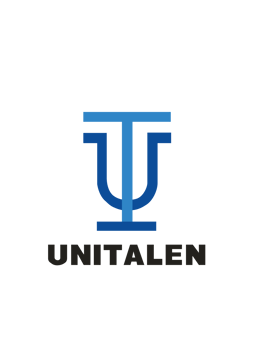
Unitalen Attorneys at Law

V&T Law Firm

W&H Law Firm

Wang Jing & Co

Wanhuida Intellectual Property

Watson Farley & Williams

Weil, Gotshal & Manges LLP

White & Case

Wikborg Rein

Wintell & Co Law Firm

Yingke Law Firm
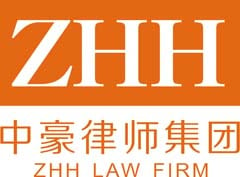
ZHH & Robin LLP

Zhong Lun Law Firm
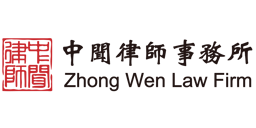
Zhong Wen Law Firm

Zhong Yin Law Firm
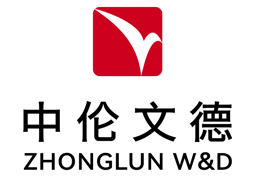
Zhonglun W&D Law Firm
News & Developments
ViewPress Releases
JunHe assisted the global leader in CMOS millimeter-wave radar chips, Calterah, in completing a multi-hundred-million-yuan Series D financing
The global leading enterprise in CMOS millimeter-wave radar SoC chips, Calterah Semiconductor Technology (Shanghai) Co., Ltd. ("Calterah" or the "Company"), announced the completion of its Series D financing amounting to several hundred million yuan. This round of financing was led by the National Integrated Circuit Industry Investment Fund, with follow-on investments from Guoxin Venture Capital, Fuchuang Venture Capital, SDIC Fund Management, Walden International, and other new and existing shareholders. JunHe provided comprehensive legal services for Calterah's Series D financing.
As the legal counsel for the company, JunHe participated in multiple rounds of its financing. The complexity and particularity of this project mainly lie in the following aspects: (1) This project required balancing the interests of the investors with the company's future overall listing arrangements. The project team assisted the company in conducting multiple communications with the investors regarding the listing arrangements. Ultimately, relying on extensive experience in listing projects and financing projects, and fully considering the investors' demands, the team maximized the protection of the company's interests while preserving the flexibility for the company to implement its listing arrangements; (2) The project involved a large number of investors. The project team assisted the company in conducting multiple rounds of communication with both new and existing shareholders, accurately grasping the core interests and demands of all parties, and successfully helped the company finalize the transaction documents and complete the closing.
Partners NIU, Yuandong, TAO, Xudong, and ZHANG, Jianwei led the JunHe team.
JunHe LLP - December 22 2025
Press Releases
JunHe supported Zhiyuan Robotics and numerous investors in securing over RMB 800 million through multiple financing rounds, including Series B and Series B+
Shanghai Zhiyuan New Innovation Technology Co., Ltd. (hereinafter referred to as "Zhiyuan Robotics") has completed multiple financing rounds including Series B and Series B+ with a total amount exceeding RMB 800 million (the "Project"). Acting as the legal counsel to Zhiyuan Robotics, JunHe Law Offices issued PRC legal due diligence reports and provided legal consulting services on specific matters to multiple investors. Meanwhile, JunHe also served as the legal counsel to certain Series B investors such as Pudong Venture Capital, certain Series B+ investors including SDIC Pioneer Capital, and certain investors in other types of financing transactions (such dual roles having obtained the recognition of Zhiyuan Robotics and the respective investors), delivering professional and meticulous legal services to both Zhiyuan Robotics and these investors. Additionally, JunHe has long acted as Zhiyuan Robotics' perennial legal counsel and legal counsel for multiple special projects, providing comprehensive legal support to the company.
Founded in February 2023, Zhiyuan Robotics is a cutting-edge technology enterprise focusing on the integrated innovation of AI and robotics. With the mission of "building a world-class leading embodied intelligent robot product and application ecosystem", the company has assembled a core team of senior executives from globally renowned enterprises and top scientists in the field of artificial intelligence. Leveraging profound technological accumulation and industrial resources, it has rapidly emerged as a unicorn in the robotics industry.
Partner HE, Tingcai led the JunHe team.
JunHe LLP - December 22 2025
Press Releases
JunHe Assists Hansong Technology in its Listing on the Shenzhen Stock Exchange's ChiNext Board
On August 6, 2025, Hansong (Nanjing) Technology (Hansong Technology, stock code: 301491) was listed on the ChiNext Board of the Shenzhen Stock Exchange (SZSE). The company publicly issued 32.25 million ordinary shares at RMB 28.91 per share, raising a total of approximately RMB 932.3475 million.
Founded in 2003, Hansong Technology is an industry-leading integrated supplier of high-end audio products and full-chain audio technology solutions. The company specializes on the research and development of high-performance audio, innovative audio products, and related technologies. It has core technological capabilities in the audio field, including high-performance audio signal processing and amplification, audio transmission, and intelligent audio systems. Hansong Technology has collaborated with many well-known brands in various segments of the global audio industry, including NAD, Bluesound, SnapOne, Sonance, JBL, McIntosh, Sonus Faber, B&W, Denon and Tonies.
JunHe served as the issuer's legal advisor for Hansong Technology's ChiNext IPO.
JunHe has acted as Hansong Technology's legal advisor since 2018. We have provided one-stop legal services in areas such as cross-border restructuring, private equity financing, capital markets, and compliance operations. These services include: (1) acting as a financing legal advisor to assist the company in completing pre-IPO private equity financing, participating in transaction structure design, reviewing transaction documents, and negotiating; (2) acting as the IPO issuer's legal advisor to assist the company in setting up a red-chip structure, dismantling the red-chip structure, restructuring to establish a joint-stock company, formulating an employee equity incentive plan, conducting legal due diligence on Hansong Technology, issuing legal opinions, and preparing a full set of A-share IPO legal application documents. We assisted the company to complete the listing counseling acceptance and the listing application, assisted it to pass the listing committee review meeting, successfully respond to SZSE feedback, and ultimately list on the ChiNext Board; (3) acting as the Hong Kong legal advisor to issue legal opinions on matters such as the establishment and maintenance of Hansong Technology's Hong Kong subsidiary in the ChiNext IPO.
The lead partner for Hansong Technology is Mr. ZHANG, Ping (Pete). The partners responsible for the ChiNext IPO and the private equity financing were Mr. ZHANG, Ping (Pete) and Mr. LI, Chenliang, with counsel Mr. YANG, Haifeng as the main lawyer. The partners providing Hong Kong legal services were Ms. YE, Yurong and Mr. Alan Chen and the internal core partner was Mr. LI, Ruochen.
JunHe LLP - December 22 2025
Press Releases
JunHe Patent Team Represents DJI in Another Successful First-Instance Victory in Revoking an Invalidity Decision
Leveraging their outstanding professional capabilities, The JunHe patent team successfully represented DJI in a first-instance administrative lawsuit concerning patent invalidity, successfully overturning the invalidity decision made by the China National Intellectual Property Administration (CNIPA) against DJI’s patent, thereby establishing a solid legal barrier for the protection of the client’s rights.
DJI is the patent holder of the invention titled “Non-Orthogonal Axis Carrier”, a technology widely used in the drone industry to stably support cameras and other equipment, thereby improving the filming quality of drones. DJI not only uses this patented technology in its own drone products, but also licenses it to other companies. Due to the pioneering contribution and significant commercial value of this patent, DJI has received high recognition from the Guangdong Provincial Government, and was awarded the Gold Award at the Sixth Guangdong Patent Awards in 2020.
In March 2023, an industry-related company requested the CNIPA to declare the entire patent invalid. Facing with a large amount of evidence and reasons for invalidity submitted by the requester, the CNIPA issued an invalidity decision after two rounds of oral hearings in December 2023, declaring the entire patent invalid. Given the significant commercial importance of this patent to DJI, the company was determined to protect its rights through administrative litigation. After extensively screening top firms in the industry, DJI ultimately chose the JunHe patent team to represent the case.
The patent in question and the comparative documents involve complex technologies related to aircraft gyroscopes and rotational inertia, covering intersecting fields of physics, mechanics, and communications. The JunHe Patent Team conducted an in-depth study of the case, analyzing the critical errors in the invalidity decision from both legal and technical perspectives, and designed a comprehensive and precise litigation strategy, which was highly recognized by the client. In the courtroom, the JunHe patent team innovatively used 3D simulation animations to vividly present the operational mechanisms of the patented technology and existing technology solutions, demonstrating their essential differences in an intuitive and illustrative manner to the judge and technical investigators, achieving an ideal courtroom effect and laying a solid foundation for victory.
After careful deliberation, the Beijing Intellectual Property Court fully recognized DJI's arguments, ruling to revoke the original invalidity decision made by the CNIPA and ordering a re-examination and decision. According to statistics, the Beijing Intellectual Property Court's rate of revoking CNIPA invalidity decisions is only about 6-7%, and the JunHe team once again successfully obtained a victory in revoking the invalidity decision. DJI highly praised the JunHe Patent Team's profound technical expertise and superb patent legal capabilities. The success of this case also lays a solid foundation for further deepening cooperation between the JunHe Patent Team and DJI in the future.
Partners WANG, Zhaolin and WEI, Yuming led the JunHe team.
JunHe LLP - December 22 2025


